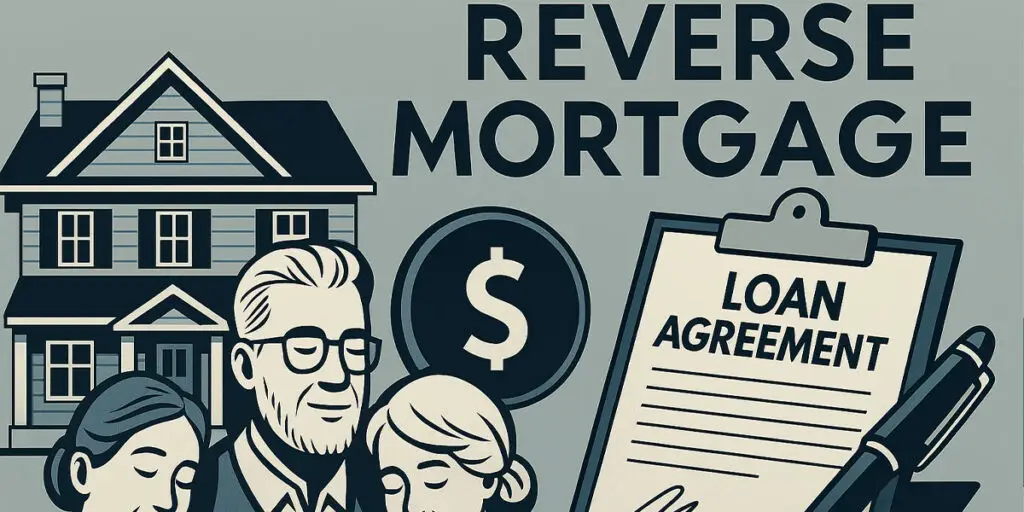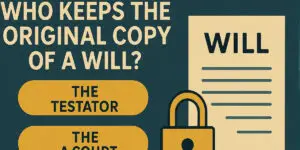Reverse Mortgages in New York: A Comprehensive Guide to Understanding the Benefits, Risks, and Impact on Estate Planning
A reverse mortgage is a loan available to homeowners aged 62 and older that allows them to borrow against the equity in their home without making monthly mortgage payments. While reverse mortgages can provide a valuable source of income for seniors, they are complex financial products with potential risks and implications for estate planning. Understanding all facets of this type of loan is important before entering into an agreement. At Morgan Legal Group, serving New York City and beyond, we provide legal guidance to seniors and their families considering reverse mortgages, ensuring they understand the terms, risks, and how these loans can impact their long-term financial security and estate plans. This comprehensive guide will explore the key aspects of reverse mortgages in New York, providing valuable insights into their eligibility requirements, benefits, risks, and how they can be integrated into your overall financial and estate planning strategy. Consulting with an attorney specializing in elder law is essential for making informed decisions.
What is a Reverse Mortgage, and How Does It Work?
A reverse mortgage, also known as a Home Equity Conversion Mortgage (HECM), is a type of loan insured by the Federal Housing Administration (FHA) that allows homeowners aged 62 and older to borrow against the equity in their home. Unlike a traditional mortgage, with a reverse mortgage, you don’t have to make monthly mortgage payments. Instead, the loan balance grows over time as interest and fees are added to the outstanding amount. The loan becomes due when you sell the home, move out, or pass away. This type of loan can provide financial flexibility for seniors.
Key features of a reverse mortgage include:
- No monthly mortgage payments are required
- You retain ownership of your home
- The loan balance grows over time
- The loan becomes due when you sell the home, move out, or pass away
- The loan is non-recourse, meaning you will never owe more than the value of your home
These features make it a unique option for some homeowners.
Eligibility Requirements for a Reverse Mortgage in New York
To be eligible for a reverse mortgage in New York, you must meet certain requirements, including:
- Be at least 62 years old
- Own your home outright or have a low mortgage balance
- Occupy the home as your primary residence
- Maintain the home and pay property taxes and homeowners insurance
- Complete a HUD-approved counseling session
Meeting these requirements is essential for obtaining a reverse mortgage.
The counseling session is designed to ensure that you understand the terms and risks of a reverse mortgage before you commit to the loan. This is a mandatory step to protect homeowners.
Benefits of a Reverse Mortgage
Reverse mortgages can provide several benefits for seniors in New York:
- Access to Tax-Free Income: Reverse mortgage proceeds are generally tax-free, providing a valuable source of income.
- No Monthly Mortgage Payments: You don’t have to make monthly mortgage payments, freeing up cash flow.
- Retain Ownership of Your Home: You retain ownership of your home and can live in it for as long as you like.
- Flexibility: You can use the loan proceeds for any purpose, such as paying for medical expenses, home improvements, or living expenses.
- Non-Recourse Loan: You will never owe more than the value of your home, protecting your heirs from debt.
These benefits can make a reverse mortgage an attractive option for some homeowners.
Risks and Drawbacks of a Reverse Mortgage
While reverse mortgages can provide several benefits, it’s important to be aware of the potential risks and drawbacks:
- Growing Loan Balance: The loan balance grows over time as interest and fees are added to the outstanding amount.
- Foreclosure Risk: You can lose your home to foreclosure if you fail to pay property taxes, homeowners insurance, or maintain the home.
- Reduced Equity: A reverse mortgage reduces the equity in your home, which can impact your ability to leave an inheritance to your heirs.
- Complex Loan Terms: Reverse mortgages can be complex and difficult to understand.
- High Upfront Costs: Reverse mortgages can involve high upfront costs, including origination fees, mortgage insurance premiums, and other expenses.
These risks require careful consideration before obtaining a reverse mortgage.
How Does a Reverse Mortgage Affect Estate Planning?
A reverse mortgage can have a significant impact on your estate plan. Because the loan reduces the equity in your home, it can impact the amount of assets available to your heirs. It’s important to discuss the implications of a reverse mortgage with an estate planning attorney to ensure that your overall estate plan aligns with your wishes and protects your loved ones. The goal is to integrate the reverse mortgage into your larger financial strategy.
Specifically, a reverse mortgage can affect:
- The amount of inheritance your heirs receive
- Your eligibility for Medicaid
- Your ability to transfer your home to your heirs
These factors should be carefully considered when making your decision.
Reverse Mortgages and Medicaid Eligibility in New York
In New York, a reverse mortgage can impact your eligibility for Medicaid, which provides financial assistance for long-term care. While the loan proceeds from a reverse mortgage are generally not considered income for Medicaid eligibility purposes, they can affect your asset eligibility. If you retain the loan proceeds in your bank account, they may be counted as an asset, potentially disqualifying you from Medicaid benefits.
However, there are strategies you can use to protect your Medicaid eligibility while still utilizing a reverse mortgage. For example, you can use the loan proceeds to pay for qualified medical expenses or to purchase a Medicaid-compliant annuity. Consulting with an elder law attorney is essential to ensure that your reverse mortgage does not jeopardize your Medicaid eligibility. Careful planning is crucial to navigate these complex rules.
Reverse Mortgages and Your Heirs: Considerations for the Future
It’s important to discuss the implications of a reverse mortgage with your heirs to ensure they understand the loan terms and how it will affect their inheritance. Your heirs will be responsible for repaying the loan when you sell the home, move out, or pass away. If the loan balance exceeds the value of the home, they will only be responsible for repaying the value of the home, thanks to the non-recourse nature of the loan. Open communication helps prevent surprises and ensures everyone is prepared.
It’s also important to consider whether your heirs will want to keep the home after your death. If so, they will need to refinance the loan or pay it off with other assets. Discuss these options with your heirs to ensure they are prepared.
Alternatives to a Reverse Mortgage in New York
Before pursuing a reverse mortgage, it’s important to explore other options for accessing cash or managing your finances. Alternatives to a reverse mortgage include:
- Selling your home and downsizing
- Obtaining a traditional home equity loan or line of credit
- Borrowing from family or friends
- Accessing retirement savings
- Cutting expenses and reducing your budget
These options may be more suitable for your situation, depending on your needs and goals. It’s important to carefully evaluate all of your options before making a decision. A financial advisor can help you assess your financial situation and determine the best course of action.
Finding a Reputable Reverse Mortgage Lender in New York
If you decide to pursue a reverse mortgage, it’s important to work with a reputable lender who is experienced and knowledgeable about these types of loans. Look for a lender who is licensed and insured in New York and who has a good reputation. You can check with the Better Business Bureau and the New York State Department of Financial Services to see if there have been any complaints filed against the lender. Be sure to do your homework.
It’s also important to compare offers from several lenders to ensure you are getting the best terms and rates. Don’t be afraid to shop around and negotiate. Informed decisions are essential for protecting your financial interests.
The Importance of Financial Counseling
As mentioned earlier, completing a HUD-approved counseling session is a mandatory requirement for obtaining a reverse mortgage. This counseling session is designed to ensure that you understand the terms and risks of the loan and that you are making an informed decision. The counselor will review your financial situation, discuss your goals, and help you evaluate whether a reverse mortgage is right for you. Take this counseling session seriously.
The counseling session is a valuable opportunity to ask questions and get unbiased advice. Don’t hesitate to express any concerns or uncertainties you may have. This is your chance to gain clarity and confidence.
Integrating a Reverse Mortgage into Your Estate Plan
If you decide to pursue a reverse mortgage, it’s important to integrate it into your overall estate plan. This includes reviewing and updating your will or trust, power of attorney, and healthcare proxy to ensure they are aligned with your new financial situation. Your estate planning attorney can help you make any necessary adjustments to your estate plan to protect your loved ones and ensure your wishes are respected. A holistic approach to planning is always recommended.
Specifically, you may need to consider:
- How the reverse mortgage will affect your heirs’ inheritance
- How to manage the loan proceeds
- How to protect your Medicaid eligibility
Addressing these issues proactively can prevent complications down the road.
Legal Protections for Seniors Considering Reverse Mortgages
New York law provides certain legal protections for seniors considering reverse mortgages. These protections include:
- Mandatory counseling sessions
- Restrictions on advertising and marketing practices
- Requirements for lenders to disclose all loan terms and fees
- Protections against foreclosure for certain borrowers
It’s important to be aware of these legal protections and to exercise your rights as a borrower. Don’t hesitate to seek legal assistance if you believe you have been the victim of fraud or abuse. Knowing your rights empowers you to make informed decisions.
The Role of an Estate Planning Attorney in Reverse Mortgage Decisions
An estate planning attorney can play a crucial role in helping you make informed decisions about reverse mortgages. An attorney can:
- Explain the legal terms and implications of the loan
- Review the loan documents to ensure they are fair and accurate
- Advise you on how the reverse mortgage will affect your estate plan
- Help you protect your assets and your Medicaid eligibility
- Represent you in negotiations with the lender
Seeking legal guidance can provide peace of mind and protect your financial interests. An experienced attorney can be your advocate throughout the process. Don’t hesitate to seek legal assistance.
Finding an Experienced Estate Planning Attorney in New York
Finding the right estate planning attorney is essential for a smooth and successful experience. Look for an attorney who:
- Specializes in elder law and estate planning
- Has experience working with clients considering reverse mortgages
- Is knowledgeable about New York law
- Is compassionate and understanding
- Has strong communication skills
- Is responsive to your needs
Schedule consultations with several attorneys to discuss your specific circumstances and goals. Ask about their fees, experience, and approach to estate planning. Pay attention to how well they communicate and whether you feel comfortable working with them. Trust and rapport are essential in the attorney-client relationship.
Protecting Your Interests with Morgan Legal Group
At Morgan Legal Group, we understand the complexities of reverse mortgages and their impact on estate planning. Our experienced attorneys are dedicated to providing compassionate and comprehensive legal support to seniors and their families throughout New York City and beyond. We take the time to understand your specific circumstances and goals, and we develop customized strategies that meet your needs and protect your interests. Contact us today to schedule a consultation and learn more about how we can help you make informed decisions about reverse mortgages and secure your financial future. We offer support through every step of the process. View our Google My Business link here.
Morgan Legal Group proudly serves the New York City community, including the Bronx, Brooklyn, NYC, Queens, and Staten Island. If you are outside of New York City, we also serve Long Island, including Suffolk County. As well as Westchester, Ulster County, and Orange County.NY Courts









